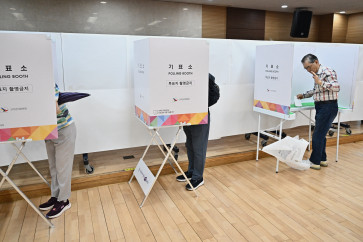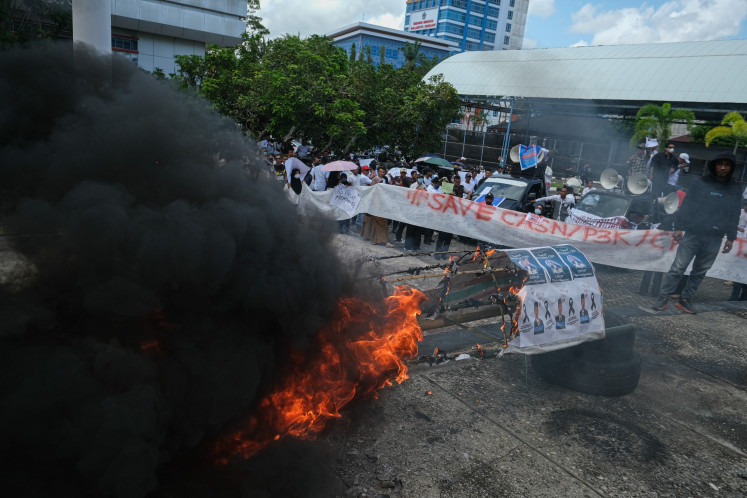Warm welcome for RI’s ratification
Carl Bildt
Change text size
Gift Premium Articles
to Anyone

C
span class="caption" style="width: 398px;">Carl Bildt. ReutersIndonesia has received a welcoming gesture from at least five countries, following it’s ratification of the Comprehensive Nuclear-Test-Ban Treaty (CTBT) on Tuesday by the House of Representatives.
The five countries are Japan, Australia, the United Kingdom, Sweden and the US, the latter of which is still to ratify the treaty.
Indonesia is the 156th country to ratify the CTBT.
“This is an important step toward the enforcement of the CTBT,” the Japanese government said in a press statement issued on Wednesday.
Australian Foreign Minister Kevin Rudd said that Indonesia’s decision to finally ratify the CTBT “would lend new impetus to efforts to universalize the CTBT, especially given Indonesia’s role as the Non-Aligned Movement’s Coordinator for Disarmament”.
Swedish Foreign Minister Carl Bildt said on Tuesday that Indonesia’s ratification of the CTBT was “indeed good news for nuclear disarmament and nonproliferation in all its aspects, as well as for regional and international security”.
British Foreign secretary William Hague also welcomed the ratification, saying it was a significant step toward the treaty’s entry into force and to a global ban on nuclear weapon test explosions.
US President Barack Obama said the ratification provided a strong example of the positive leadership role Indonesia could play to prevent the spread of nuclear weapons.
The five countries urged the remaining eight yet to ratify the CTBT to immediately follow Indonesia’s lead. Egypt, Iran, Israel, China and the US, the latter two being nuclear weapon states, have all signed the CTBT but have not ratified it in their respective parliaments, while India, North Korea and Pakistan have not yet signed, according to the CTBT’s official web site (www.ctbto.org).
Indonesia’s Foreign Ministry director for international security and disarmament cooperation, Febrian Ruddyard, said Indonesia would immediately submit the ratified instrument to the UN after it had been promulgated in the State Gazette.
The treaty will come into force only with the signature and ratification of those states listed under Annex 2 of the treaty, 180 days after they have all deposited their instruments of ratification.
Indonesia Defense University international relations expert Bantarto Bandoro said on Thursday that the US had allegedly not yet ratified the CTBT because it still kept nuclear tests on its priority list.
“The US, which is one of the pioneers of the CTBT, seems to be reluctant to ratify it and tries to cover this up by giving a high thumbs-up to Indonesia’s ratification.”
University of Indonesia security expert Andi Wdijajanto said the US likely had an interest in ratifying
the CTBT because it would significantly help decline its arms race, particularly with Russia. He added that Republicans were the stumbling block.
“The Republicans do not want to give up US nuclear power to the international regime. But it is more difficult to predict when China will ratify the CTBT, citing its interest in developing new nuclear-powered submarines that carry nuclear warheads.”









